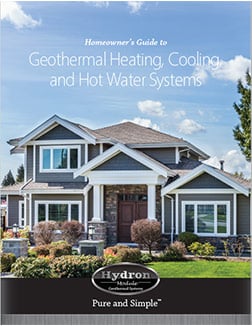Dave and Nancy down the street rave about the energy efficiency of their geothermal heating and cooling system. They enjoy lower utility bills, less maintenance, better performance, and long-lasting equipment—the list goes on. Still, their experience is, well, their experience.
What does data say about energy-efficient investments and home value? How do my choices for efficiency today add value to my home down the road if I were to sell?
%20(1).jpg?width=900&height=600&name=Untitled%20design%20(13)%20(1).jpg)
IF RESEARCH SPEAKS TO YOUR HEART...
Data from various sources suggests that upgrades carry weight in many markets. Here’s a sampling:
According to the National Association of Homebuilders (NAH) –“What Homebuyers Really Want” surveys:
- 53% of homebuyers said a “net zero” home is desirable or essential.
- 49% of homebuyers said geothermal heating and cooling is desirable or essential.
- 57% said they are willing to pay $5,000 or more, on top of the price of the home, in order to save $1,000 a year in utilities.
- 79% said an ENERGY STAR rating for the home is desirable or essential. Other top five “green” features include ENERGY STAR windows and appliances.
According to the National Association of Realtors (NAR), 32% of homebuyers consider heating and cooling costs important. (Couple that with this from the U.S. Department of Energy: A geothermal heat pump can save homeowners up to 65% on heating and cooling costs.)
From Homelight’s recent survey of 1,000 real estate agents nationwide – The value that energy efficiency adds to a home has increased 25 percent, from $6,556 to $8,246.
From the University of California, Berkeley, and UCLA - Certified green-labeled homes in California sell for an average of 9% more than non-labeled homes.
From Freddie Mac, energy-rated homes nationwide sell for, on average, 2.7% more than comparable unrated homes. Better-rated homes sell for 3-5% more than lesser-rated homes.
From the Lawrence Berekley National Laboratory – Homes with higher Home Energy Scores (HES) command a higher sale price. Reducing estimated annual energy bills by $100 was associated with a 0.4% increase in sale price.
From ENERGY STAR, The U.S. Environmental Protection Agency's rating system – Various studies show sale and re-sale price premiums ranging from 2% to 8% in most markets for rated energy-efficient homes.
These studies collectively indicate a trend where consumers are willing to pay more for homes with higher energy ratings and energy-efficient features. Situations vary, however, by a home’s location, local market conditions, an appraiser’s knowledge and skills evaluating energy efficiencies, and even the buyers’ understanding of energy labels.
IF YOU SELL, AN “ECO-SAVVY” AGENT CAN HELP
Some sellers fail to mention their home’s energy certification to their listing agent. Some agents aren’t knowledgeable about ENERGY STAR and LEEDS credentials. When the time comes for you to sell your energy-efficient home, you may want to consult a real estate professional who specializes in sustainability and is certified as an EcoBroker. The National Association of Realtors can help.
In the meantime, view this energy-efficient beauty kept comfortable with geothermal heating and cooling. It holds various certifications, including LEED-Platinum Level and GreenStar Zero Energy Capable.

